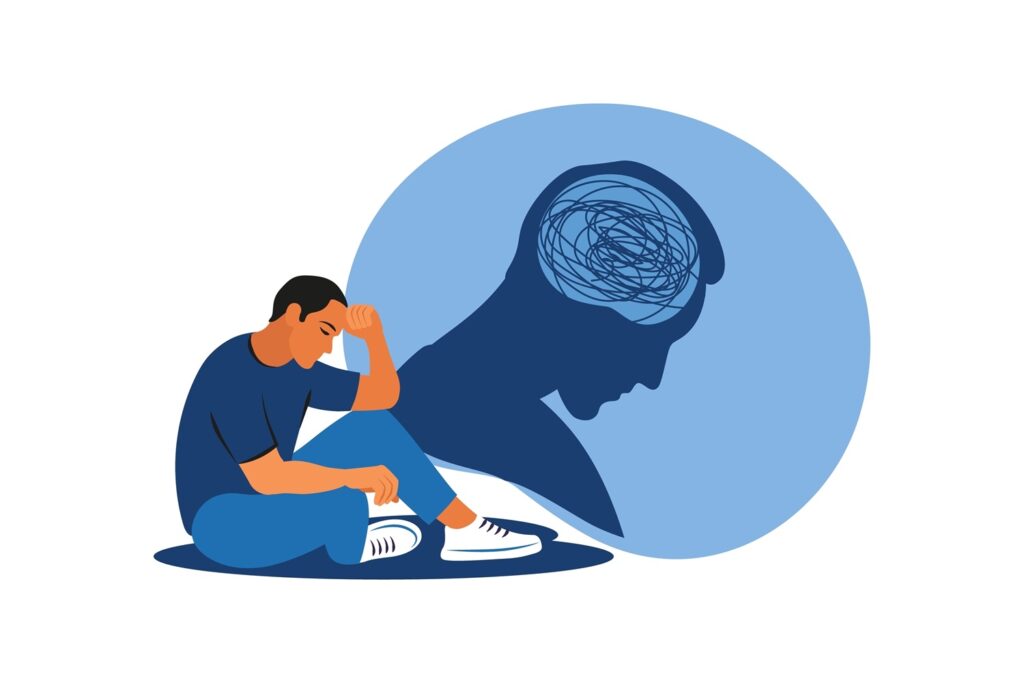Are you getting stomach pains after eating? Try these 9 expert tips

Written by tapGP Clinical Team
5 November 2023
Stomach pains after eating can be a common and uncomfortable experience for many people. These pains can range from mild discomfort to severe cramps and can be caused by various factors, including dietary choices, food allergies, underlying medical conditions, and even stress. Let’s look at the common causes of stomach pains after eating and provide some practical tips on what to do to alleviate the discomfort.
1) Slow down and savour your meals
Many of us rush through our meals or eat on the go. Eating too quickly can lead to overeating and indigestion, which can result in stomach pains. Try to slow down and savour your meals. Chew your food thoroughly, and take your time to enjoy the flavours. Not only will this improve digestion, but it can also help you recognise when you’re full, preventing overeating.
When you eat too quickly, you tend to swallow air along with your food. This can lead to bloating and discomfort, as the excess air trapped in your stomach can cause pressure and pain. Chewing your food properly and eating at a more leisurely pace can help reduce the amount of air you swallow.
2) Identify food allergies and sensitivities
Food allergies and sensitivities can trigger stomach pains after eating. If you suspect that a particular food is causing your discomfort, try keeping a food diary to track your symptoms. Common triggers include gluten, dairy, and certain types of fruits or vegetables. If you suspect an allergy or sensitivity, speak with a GP to get tested or diagnosed, and then adjust your diet accordingly.
Food allergies can cause a wide range of symptoms, including stomach pain, nausea, diarrhoea, and even hives or anaphylaxis (severe allergic reaction) in severe cases. Sensitivities, on the other hand, may not be as severe but can still lead to digestive discomfort. It’s important to identify the specific foods that trigger your symptoms so you can avoid them in the future.
3) Maintain a balanced diet
A well-balanced diet is key to promoting good digestion and preventing stomach pains. Make sure you’re getting a variety of nutrients from different food groups, including fruits, vegetables, lean proteins, and whole grains. Avoid eating foods that are high-fat or spicy, as they can be harder to digest and may lead to discomfort for some people.
Fibre is an essential component of a balanced diet. It helps regulate bowel movements, prevent constipation and maintain a healthy gut. However, too much fibre too quickly can also cause stomach discomfort. If you’re increasing your fibre intake, do so gradually to give your digestive system time to adjust.
4) Portion control
Overeating can be a major cause of stomach pain. Be mindful of portion sizes and listen to your body’s hunger cues. If you find yourself constantly overeating, try using smaller plates, serving yourself smaller portions, and waiting a few minutes before deciding if you need seconds.
Portion control is a simple yet effective way to manage your food intake. Smaller portions not only reduce the likelihood of overeating but also help prevent excessive stretching of the stomach, which can cause discomfort.
5) Stay hydrated
Proper hydration is essential for digestion. Drinking enough water helps your body break down food and move it through your digestive system. Ensure that you’re drinking an adequate amount of water throughout the day, but avoid too much water consumption before or during meals, as it can dilute stomach acid, making digestion less efficient.
Hydration is important for maintaining the mucus lining in your stomach, which protects it from the corrosive effects of stomach acid. Without enough water, this lining can be affected, leading to stomach pain and irritation.
6) Manage stress
When you’re stressed, your body can enter “fight or flight” mode, diverting resources away from digestion. This can lead to stomach pains and other digestive issues. Try to include stress-reduction techniques into your daily routine, such as deep breathing, meditation, yoga, or exercise, to help manage your stress levels.
The connection between stress and digestive health has been well researched. Long-term stress can lead to a variety of gastrointestinal problems, including irritable bowel syndrome (IBS) and functional dyspepsia. Managing stress is not only good for your mental well-being but also vital for a healthy digestive system.
7) Avoid overly spicy and fatty foods
Spicy and fatty foods can be delicious, but they may not agree with your stomach. If you experience discomfort after a meal, try to limit your consumption of these types of foods, especially in the evening. You can still enjoy them in moderation, but be mindful of their potential effects on your digestive system.
Spices and high-fat foods can relax the lower oesophageal sphincter, the muscle that separates the stomach from the oesophagus. When this muscle relaxes, it can allow stomach acid to flow back into the oesophagus, causing heartburn and discomfort.
8) Listen to your body
Your body is constantly providing signals about what it needs. Pay attention to these cues. If you experience stomach pains after eating specific foods or in certain situations, your body might be telling you something. It’s essential to listen and make necessary adjustments to your diet and eating habits.
Your body is remarkable at providing feedback about what works and what doesn’t. If you regularly experience discomfort after eating certain foods or meals, it’s a clear indication that you need to change your diet. Don’t ignore these signals; instead, use them as valuable information to improve your overall well-being.
9) Consult a healthcare professional
If you’re experiencing persistent or severe stomach pains after eating, it’s important to consult with a GP. They can help identify underlying medical conditions such as irritable bowel syndrome, gastritis or food intolerances. A proper diagnosis and treatment plan can make a significant difference in your comfort and overall well-being.
Some digestive disorders, such as celiac disease, crohn’s disease, and inflammatory bowel disease, require medical attention and a specific treatment plan. A GP can perform the necessary tests and examinations to identify the root cause of your stomach pains and provide you with the appropriate guidance and treatment options.
Conclusion
Stomach pains after eating can be a challenging issue to deal with, but there are several steps you can take to reduce the discomfort. By having a more mindful approach to eating, maintaining a balanced diet, staying hydrated, managing stress, and seeking professional guidance when necessary, you can significantly reduce the likelihood of experiencing stomach pains after eating. Remember that everyone is unique, so it may take some trial and error to identify the best strategies for your particular situation. Listening to your body and making positive changes in your eating habits can go a long way in promoting digestive health and overall well-being. With the right approach, you can enjoy your meals without the worry of stomach pains.
Ready to see an online GP? Book your online GP appointment to begin your health journey
Recent articles
Ready to see an online GP? Book your online GP appointment to begin your health journey


